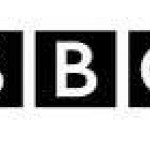- Branża: Broadcasting & receiving
- Number of terms: 5074
- Number of blossaries: 1
- Company Profile:
The largest broadcasting organisation in the world.
The fundamental law of the US federal system of government. The constitution defines the principal organs of government, their jurisdictions and the basic rights of citizens.
It is upheld as the supreme law of the land, meaning all federal and state laws, executive actions and judicial decisions must be consistent with it.
Industry:Government
The donkey is the unofficial political symbol for the Democratic Party. Democratic Party historians say the symbol was first used during Andrew Jackson's presidential campaign in 1828.
Industry:Government
The collective term for the 538 electors who officially elect the president and vice-president of the United States. Presidential candidates require a majority of 270 college votes to win the presidency. The number of electors each state has is the same as the total number of its senators and representatives in Congress.
The college system was originally conceived before the existence of political parties and was designed to allow the electors to act as independent voters. Electors are now considered expected to follow the wishes of the majority of voters in each state.
Industry:Government
The elephant is the traditional symbol for the Republican Party. It first appeared in a cartoon in the 7 November 1874 edition of Harper's Weekly by the artist Thomas Nast.
Industry:Government
In 1975, Congress created FEC as an independent regulatory body to administer and enforce the Federal Election Campaign Act (FECA).
The FEC discloses campaign finance information, enforces the provisions of the act, and oversees the public funding of presidential elections.
By law, no more than three of the six members of the commission can be members of the same political party.
Federal Election Campaign Act (FECA)
In 1974, amendments were made to toughen campaign laws after the Watergate scandal in 1972. The new amendments established strict disclosure requirements for campaign donations, set specific limits for those donations, instituted public financing for presidential elections, and established the Federal Election Commission to govern the process.
Industry:Government
The traditional nickname for the Republican Party widely used in American political reporting.
The party's official history traces the term back to the late 19th Century citing an article in the Boston Post headlined "The GOP Doomed. "
The party website suggests the term Grand Old Party may have evolved from the term used to refer to British Prime Minister William Gladstone - the GOM or the Grand Old Man.
Industry:Government
The larger of the two houses of Congress.
The 435 members of the House - generally known as Congressmen and Congresswomen - serve two-year terms, as compared to the six-year term of senators.
The presiding member, the Speaker of the House, is elected by a majority vote of the members of the House at the beginning of each new Congress.
House members each represent approximately half a million citizens in their "districts". The number of districts per state is determined each decade by a proportional allocation based on the federal census.
Industry:Government
The House Majority Leader is the second most powerful member of the majority party in the House of Representatives.
Unlike the speaker, he or she has no responsibility to the House as a whole, and focuses purely on advancing the interests of his or her party - for example, by organising members to support the party's political priorities.
Industry:Government
The leader of the minority party in the House of Representatives.
He or she acts as a representative for the minority party's policy position and organises its legislative strategy.
Industry:Government
A 2002 campaign finance reform law named after its main sponsors: Republican Senator John McCain of Arizona and Wisconsin Democrat Russ Feingold. Aspects of the law were overturned by the Supreme Court's Citizens United ruling in 2010.
The law is designed to limit the underground system of fundraising and spending in federal election campaigns. It bans "soft money" to national political parties and restricts "issue ads" benefiting candidates. These two practices became increasingly common in elections after the 1974 Buckley vs Valeo Supreme Court decision left loopholes in campaign disclosure laws and limits on contributions.
Industry:Government
